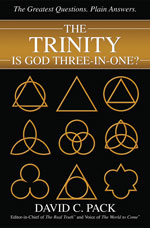As a result of the use of both of these terms, some have drawn the conclusion that two different spirits are being talked about. However, “Ghost” is an archaic translation of the original Greek word pneuma, from which both terms are translated.
When referring to God’s Spirit, this word, which literally means “breath,” is properly translated “Spirit,” in Luke 11:13, Ephesians 1:13 and 4:30, and many other verses.
At the time of the first printing of the King James Version of the Bible (1611; over 1,400 years after the New Testament was first written in Greek), the English words “spirit” and “ghost” had the same meaning. This made it natural for the translators to render the one Greek word as both English words. Though their inconsistency was not intentional or founded on corrupt motives, it resulted in the false concept that a “Holy Ghost” and “Holy Spirit” are two separate spirits.
To clarify the matter, the term “Holy Spirit” should be used in all instances in which the Spirit of God or Spirit of Christ is referenced. (A good example of this is Romans 8:9, which mentions both the “Spirit of God” and “Spirit of Christ.” As Ephesians 4:6 shows, when a person receives the Holy Spirit, it is one Spirit: “One God and Father of all, who is above all, and through all, and in you all.”) Also notice John 10:30; 14:8-9; Amos 3:3.
This problem is rectified in the New King James version, in which the Greek expression hagion pneuma is consistently translated “Holy Spirit.”
For further information, you may wish to read our booklet The Trinity – Is God Three-In-One?
While newspapers, magazines and other news media report what happened, The Real Truth analyzes and explains the root cause of why events happen—why humanity is at a loss to solve today’s problems.



















